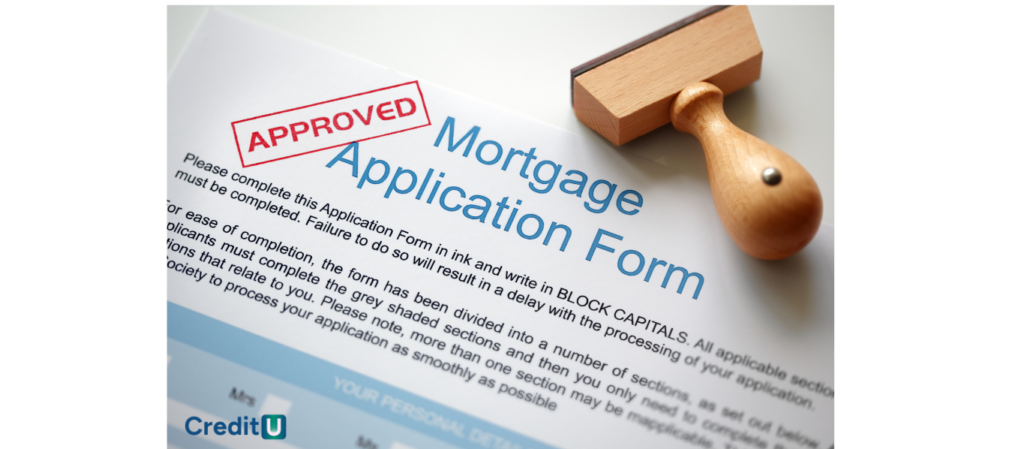House Hunting Tips for Beginners: What to Look for and What to Avoid.
January 4, 2024

Congratulations on embarking on the exciting journey of becoming a first-time homebuyer! House hunting can be a daunting task, but with the right approach, it can be an enjoyable experience. Here are some helpful tips to make your journey smoother.
Topics Covered... Create a Budget and Save Before House Hunting Set and Track a Financial Goal Don't Forget About Furniture! Check or Improve Your Credit Score Before the Home Buying Process What's a Credit Report? Deal Breakers Location, Location, Location... Get Pre-Approved For a Mortgage Have a Home Inspector on Standby Research Real Estate Agents What Can CreditU Do For You? Key Insights - House Hunting Tips for Beginners: What to Look for and What to Avoid.
Create a Budget and Save Before House Hunting
Determine your budget and stick to it. It can be tempting to fall in love with a house that’s out of your price range. Unfortunately, that could lead to financial strain in the long run. Consider all the costs associated with owning a home, such as mortgage payments, property taxes, and maintenance, when setting your budget. To create a budget, start by listing all your sources of income. Then make a list of all your expenses. Categorize your expenses into fixed and variable expenses.
Fixed and Variable Expenses
Fixed expenses are those that don’t change from month to month, like rent or mortgage payments. Variable expenses are those that change each month, like groceries or entertainment. Once you have all your expenses listed, subtract them from your income. The money you have left over could be placed into your savings for your down payment on a home. If you find yourself short on cash, look for areas where you can cut back on spending. Remember to always revisit and adjust your budget as needed.
Set and Track a Financial Goal
Once you’re confident with your new budget it’s time to create a financial goal. Determine how much money you need to save for a down payment and closing costs. Then set realistic saving goals. This will help you stay motivated and on track with your savings plan. Next, you could open a separate savings account for your down payment and closing costs. This will help you keep your savings organized and separate from your other funds. Consider automating that account each month. This will help you save money consistently and avoid the temptation to spend it. These tips can help you save money and get closer to achieving your goal of buying a house. Remember that it takes time and effort to save money, but the rewards are worth it in the end.
Don’t Forget About Furniture!

One more thing you’ll need to consider during the budgeting process is furniture. There is no shame in not being able to afford new furniture in your dream home right away. Saving up for furniture could help you be more prepared to move in your new home. Purchasing a home is a significant investment that requires careful financial planning. It’s not just the down payment and mortgage payments that you have to consider. You’ll need to think about additional expenses such as property taxes, insurance, maintenance, and repairs. By saving up for furniture beforehand, you can avoid adding another financial burden to your plate. You’ll also be ensuring that your home is comfortable and livable.
One Step at a Time is the Way to Go…
Buying the furniture after you move into your new home can be expensive and stressful. You may be tempted to buy everything at once. It’s important to prioritize your purchases and invest in quality pieces that will last for years. By saving up beforehand, you can take your time to research and compare prices to find the best deals and avoid overspending. Take it easy on yourself and remember that you don’t have to buy every piece all at once.
Plenty of people start with only a bed and a couch. You’re going to be okay and get everything you need in due time with proper budgeting and saving. Having furniture in your home can also improve your quality of life and make your living space feel more inviting and personalized. By taking the time to choose pieces that reflect your style and preferences, you can create a space that you’re proud to call your own and enjoy for years to come.
Check or Improve Your Credit Score Before the Home Buying Process

Next, you’ll want to make sure that your credit score is in order. Familiarize yourself with your credit report and check it routinely. A credit score is a numerical representation of an individual’s creditworthiness. It is a three-digit number ranging from 300 to 850 and is calculated based on various factors such as payment history, credit utilization, length of credit history, types of credit used, and new credit inquiries. A high credit score indicates that the individual is more likely to repay the borrowed money on time. You can do things like making timely payments and keeping credit card balances low to improve your credit score. It takes time and effort to improve a credit score, but it is worth the investment. It can help in securing a favorable mortgage loan. Obtain a free credit report at Annual Credit Report.com.
What’s a Credit Report?
So, what is a credit report and what can you find on one? A credit report is a detailed summary of an individual’s credit history, including all credit accounts they have opened or closed, any credit inquiries made, and their payment history. Credit reports typically include basic identifying information such as the individual’s name, address, and social security number. They also contain information on all of the individual’s loans, credit cards, and other lines of credit, including the dates they were opened and closed, the credit limit or balance, the payment history, and any delinquencies or defaults.
Additionally, credit reports may include public records such as bankruptcies, tax liens, and civil judgments that could negatively impact a person’s credit score. A credit report provides a comprehensive overview of an individual’s creditworthiness and financial behavior, making it an essential tool for lenders and credit bureaus to assess risk and determine eligibility for loans and other credit products. It is important to routinely check your credit report, because there may be discrepancies that you need to address that could improve your credit score. Remember, better credit score = better mortgage loan rates.

Deal Breakers
Now that you’ve budgeted, saved like a pro, and have your credit score in order, it’s almost time to start house hunting for your dream home. Start by making a list of your must-haves and deal breakers though. This will help you narrow down your house hunting search and avoid wasting time on properties that don’t meet your needs. Prioritize what’s most important to you, whether it’s the number of bedrooms/bathrooms, a backyard, a pool, or proximity to schools or work. Do you want to be in town or out in the countryside? These are items you need to consider while you are beginning your house hunting journey.
Get Pre-Approved For a Mortgage
Pre-approval means that a lender has reviewed your financial information and has determined how much money they are willing to lend you to buy a home. There are several benefits to getting pre-approved for a mortgage before house hunting. It’ll give you a good idea of what you can afford. This will help you narrow down your search to homes that are within your budget, which can save you time and frustration. Pre-approval will also give you an edge over other buyers who have not been pre-approved. Sellers will be more likely to take your offer seriously if they know that you have already secured financing.

Getting pre-approved for a mortgage is a relatively simple process. You will need to provide the lender with some basic information about your income, employment history, and credit score. The lender will then review this information and determine how much money they are willing to lend you. Once you have been pre-approved, you will receive a letter that you can provide to sellers. Once you’ve completed your house hunting, this letter will show the buyer that you are a serious buyer, and it will make the home buying process much smoother and more efficient once.
Location, Location, Location…
Researching the area where your potential home is located is also crucial before making the decision to buy it. While house hunting, you should be researching every area a house in your search is located. This is because the location can have a significant impact on your quality of life and investment. Your dream home will start to look more like a nightmare when you realize your house is not in the proper zone for your kids to go to a specific school, or it’s not as close to town as you like, or that the crime rate is through the roof. Researching the area gives you an idea of the crime rate in the neighborhood, which can affect your safety and security. It can also help you determine the quality of schools, which is important if you have children or plan to have them in the future.

Now you can even find out about the availability of public transportation, nearby amenities like parks, shopping centers, and hospitals, and the general atmosphere of the community. Some house hunting websites will have this information readily available on the information page of the house you’re viewing Secondly, the location of your home can affect its value and potential resale value. If the area is desirable and in high demand, it can increase the value of your home over time. On the other hand, if the area is declining or has a negative reputation, it can decrease the value of your home.
Researching the area where your potential home is located is essential in making an informed decision about your investment. It can help you understand the community, assess any potential risks, and determine the value of your property. You’ll want to find as much of this information as you can during the house hunting process. It will save you time and narrow down your house hunting search.
Have a Home Inspector on Standby

When you are in the process of buying a new home, it can be easy to get caught up in the excitement and overlook potential issues with the property. This is where a professional home inspector can come in handy. A home inspector will thoroughly examine the property, including the structure, plumbing, electrical systems, and more, to identify any potential problems that may not be immediately visible to the untrained eye. By hiring a professional home inspector, you can have peace of mind knowing that you are making an informed decision about your new home and can avoid any unexpected and costly repairs down the road. So, before making the final decision on your dream home, consider investing in a professional home inspection.
Research Real Estate Agents

Unfortunately, your real estate agent should be added to your growing research pile for home buying. Make sure you’re working with a reputable real estate agent who can guide you through the process and provide valuable insights and advice. They can help you find properties that meet your criteria, negotiate offers, and ensure a smooth closing process.
Remember, buying a home is a major investment, so take your time, save money, and do your research to make an informed decision. Good luck with your house hunting!
What Can CreditU Do For You?
CreditU can help you if you’re currently house hunting! When you apply for a mortgage, the lender will consider your credit score to determine your eligibility for a loan and the interest rate you will be offered. One of the most important factors that can affect your ability to purchase a house is your credit score. CreditU can help you improve your credit score by better managing your finances and paying off debt.
Moreover, CreditU can help you create a budget and track your expenses. This is one of the important features when you are house hunting because you will need to have a clear understanding of how much you can afford to spend on a down payment, mortgage payments, and other related expenses, like furniture. With CreditU, you can set financial goals and work towards achieving them, which can help you save money and manage your finances more effectively.
CreditU can be a helpful tool for someone who is house hunting by providing them with insights into their credit score, helping them create a budget, and tracking their expenses. By using CreditU, you can increase your chances of getting approved for a mortgage and achieving your financial goals.
Key Insights
1. Determine your budget and stick to it.
2. Determine how much money you need to save for a down payment and closing costs and set a realistic savings goal.
3. Consider budgeting for furniture.
4. Check and improve your credit score (if needed).
5. Sellers will be more likely to take your offer seriously if they know that you have already secured financing. Get Pre Approved For a Mortgage.
6. Researching the area where your potential home is located is also crucial before making the decision to buy it.
7. Have a home inspector on standby to thoroughly examine the property for potential problems.
8. Make sure you’re working with a reputable real estate agent who can guide you through the process and provide valuable insights and advice.
Last Updated on January 11, 2024 by Dilini Dias Dahanayake








